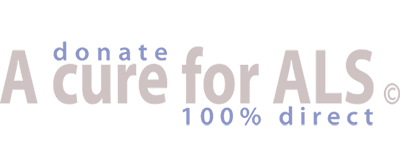Research of growth factor VEGF continued
19-12-2014
At UZ Leuven the research of sNN0029 (VEGF) is carried on. sNN0029 is an experimental medication that can possibly slow down the progression of ALS. In this phase 1 study there will only be kept an eye on the safety and tolerability of the medication for ALS patients.
Vascular endothelial growth factor (VEGF), is a protein that’s naturally found in the human body and contributes to the development of blood vessels and nerves in the first years of one’s life. VEGF also appears to protect the motor neurons against necrosis and because of this it extends the lifespan. Mice with less VEGF production develop a motor neuron disease and this growth factor could improve the survival of motor neurons in cultivation. In the mice and rats model of the disease the addition of VEGF managed to slow down the disease’s progress.
Because VEGF can’t be transmitted through the veins towards the brain, the medicine has to be administered straight into the cerebrospinal fluid which is found in a ventricle. To do this a thin I.V. tube is brought into the ventricle during an operation. This is connected to a dosing pump which is inserted under the skin near the stomach. That way VEGF can constantly spread through the cerebrospinal fluid. This way a maximum concentration of the medicine will be obtained in and around the nerve tissue.
Details of the study
This phase I clinical study, initiated by NEWRON Sweden, has the goal to research the safety and tolerability of this medication. It’s not supposed to test its effectiveness.
The research is executed double-blind, randomized and placebo-controlled. Patients will be randomly put in one of two groups: patients who get VEGF (2/3) and patients who get placebo (infusion administration without working medication, 1/3). “Double-blind” means that not the patient, nor the research doctor, nor anyone else of the participating study personnel knows whether the patient gets VEGF or placebo. “Randomized” means that the patient will be randomly divided into the sNN0029 group or the placebo group. After three months all patients will receive VEGF in an “open-label extension” study.
The research will be done at UZ Leuven, Belgium and UMC, Utrecht. There will be a total of 18 people participating, spread across the two centers.
Translation: Sara De Roy


